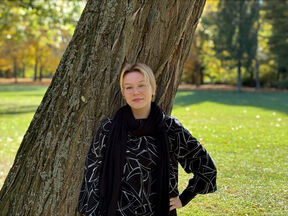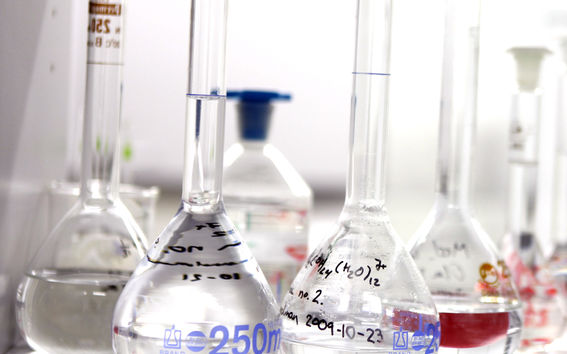Chemical engineering solves the biggest problems of our time
School of Chemical Engineering combines natural sciences and engineering to refine research results and put them into practice as sustainable innovations.

Veera Mettänen has found her place at Aalto and feels she’s reached a point where everything is starting to come together and make sense. Her master’s studies in Chemistry and Materials Science have inspired her to explore the very foundations of how the world works.
‘In materials science, we go really deep. I want to understand why a surface feels the way it does — or why anything exists at all. I’m especially fascinated by nanoscale phenomena and how materials behave,’ Veera says.
Her studies have taught her to view phenomena from entirely new perspectives.
‘For example, through quantum mechanics and orbital theory, you can explain why one reaction occurs and another doesn’t. That moment when you see the link between theory and reality, that’s when you know you’ve reached the core of it!’
Veera has built her study path around what genuinely interests her. When it comes to choosing courses, she encourages others to trust themselves and follow their intuition.
‘Talk to senior students and stay open to different options. It’s important to listen to yourself and choose what truly resonates with you. I believe in intuition — it often leads you exactly where you’re meant to go.’
In her master’s programme, Veera complements her chemistry and materials science expertise with a minor in neuroscience, which adds a whole new dimension to her curiosity about how the world works.
‘I want to learn how to combine neuroscience with chemical engineering and discover new perspectives between the two fields. The way the brain functions and how nerve impulses form is incredibly fascinating — and it’s all deeply connected to chemistry. This combination really feels like my thing.’
Alongside her studies, Veera works as a teaching assistant in a quantum mechanics course. For her, teaching is above all a way to share the joy of understanding.
‘I want others to realise how cool this stuff really is! I often tell students: let’s take a moment, sit down together and really think through the tasks, instead of just rushing to finish them. What truly matters is understanding what you’re doing.’
Being a teaching assistant has also helped Veera grow as a student. It has strengthened her critical thinking, deepened her understanding of advanced courses and encouraged her to explore different ways of learning.
‘It’s important to learn different study techniques, because one method doesn’t fit every situation. The more tools you have, the easier studying becomes. My studies have really made me stop and reflect on my own thinking. Learning to recognise your uncertainties and how you process things helps enormously — not just in studying, but in growing as a person.’
When Veera thinks about the future, she sees herself as a leader — someone who understands people and creates a positive working environment. She studied leadership as a minor during her bachelor’s degree and wants to continue developing into a leader who truly understands people and the demands of different roles.
‘I want to be a people-oriented leader, not just a project manager. It’s important to me that the workplace has good energy and that people find their work meaningful. I know becoming a good leader takes time and effort, but I’m ready for that journey.’
Veera envisions her career in materials engineering — perhaps in a company, or even in her own business.
‘I believe that combining chemical engineering with neuroscience could open up entirely new kinds of opportunities in the future — and that feels like the right direction for me.’
Text: Marjukka Puolakka

School of Chemical Engineering combines natural sciences and engineering to refine research results and put them into practice as sustainable innovations.

The development of new molecules and materials has an essential role in building a more sustainable future.



